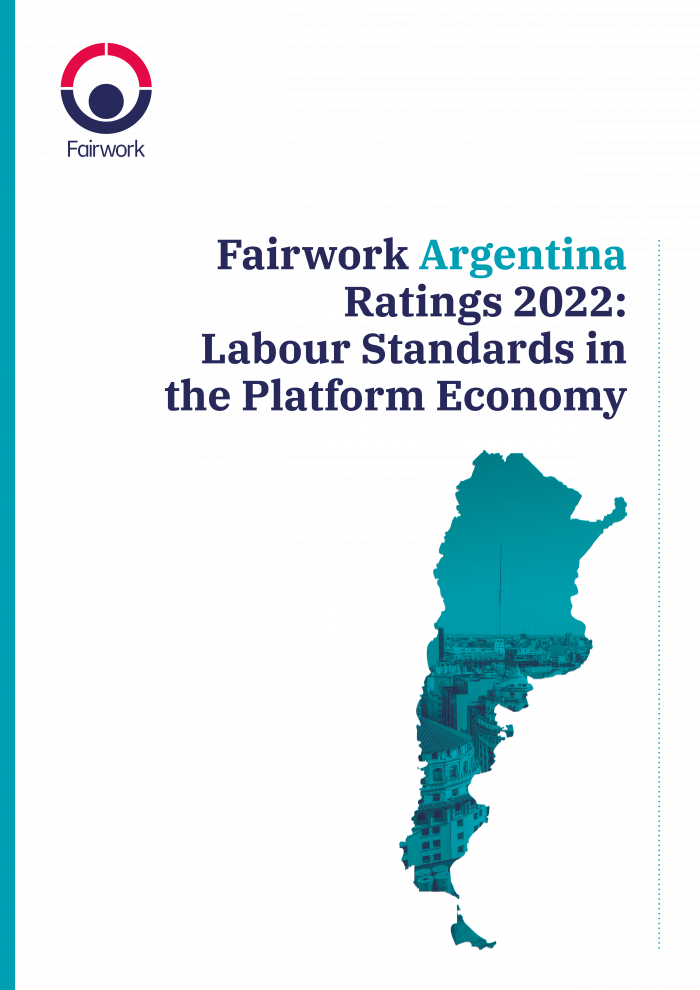This website uses cookies so that we can provide you with the best user experience possible. Cookie information is stored in your browser and performs functions such as recognising you when you return to our website and helping our team to understand which sections of the website you find most interesting and useful.
Fairwork Argentina Ratings 2022: Labour Standards in the Platform Economy


In Latin American countries, including Argentina, these platforms have expanded rapidly as a major opportunity for generating sources of employment and income. Furthermore, in the context of the COVID-19 pandemic, these platforms have become an employment shelter for a large share of the population that has been hit by the loss of jobs and income. However, access to platform work does not necessarily imply that the working conditions are fair. The main goal of this report is to identify and analyse the working conditions in these platforms.
This report represents the first assessment to determine to what extent the main platforms operating in Argentina in the delivery (PedidosYa, Rappi) and ride-hailing (Didi, Uber, Cabify, Beat) sectors uphold five principles of fair work relating to: pay, working conditions, contracts, management, and representation. To conduct this research, in-depth interviews with platform workers and managers were held between August and November 2021. Platform managers were asked to provide documentary evidence regarding their policies relating to the five principles mentioned above.
The scores obtained from the assessment show that, while some platforms have developed some practices regarding communication with workers and safety measures, this is the exception rather than the rule. In this regard, several issues have been evidenced relating to insecurity, lack of minimum hourly wages, and unilateral decision-making on the part of platforms. The COVID-19 crisis has accentuated these problems: the lack of protection against health risks and the limited coverage against illness or accidents are constants that increase workers’ vulnerability.
